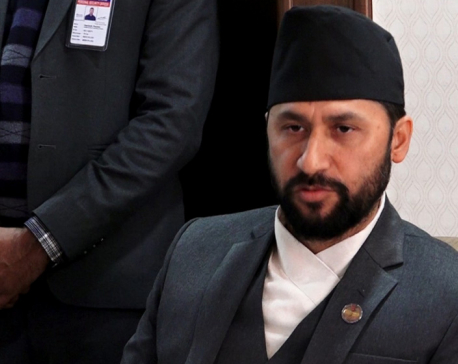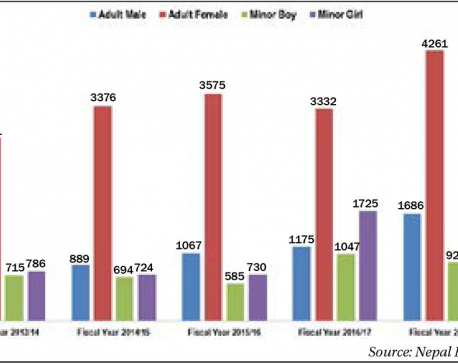
OR
Editorial
Take proactive measures to expedite enactment of Federal Police Act
Published On: January 20, 2024 07:43 AM NPT By: Republica | @RepublicaNepal

Nepal Police currently operates under a 68-year-old law. Despite the promise of Deputy Prime Minister and Home Minister Narayan Kaji Shrestha to introduce a new law governing the country's police administration ten months ago, progress has stagnated, limiting it to mere 'discussion' and 'commitment.' The relevant agency has failed to advance the actual process, raising concerns about the potential impact on the country's overall security. The primary obstacle to enacting the Federal Police Act appears to be a dispute over authority. The top police leadership seeks to retain control over the security command for the entire country, while provinces demand for the right to exercise such powers. The Federal Police Act, which is crucial for regulating police functions from recruitment to deployment of police personnel, remains in limbo due to disagreements over whether this authority should rest with the Nepal Police Headquarters or be decentralized to the provinces.
While provinces have enacted police laws independently of federal legislation, the absence of corresponding federal laws renders these provincial laws unenforceable. Constitutional conflicts between state and federal laws further complicate the situation, leading to frustration among provincial governments whose police laws remain dormant due to the absence of federal legislation. Home ministers of the provincial governments have previously expressed their discontent with Prime Minister Pushpa Kamal Dahal over this issue. The transition to federalism should naturally see powers and resources devolved to lower-rung governments. However, the lack of enthusiasm for such decentralization at the federal level and the inability of provinces to demonstrate their capacity to operate within these laws contribute to the impasse. Concerns regarding irregularities, corruption, and autocracy within the provinces further undermine their authority, particularly in sensitive areas like security. Despite all these, the political parties in power do not have any grounds to backtrack from the implementation of federalism. If the federal government thinks that provincial governments are not capable of handling sensitive issues like security, it is the responsibility of the federal government to support and enable them rather than backtracking from the implementation of federalism. Establishing a centralized 'control mechanism' to prevent the misuse of rights could be a possible solution, ensuring proper monitoring, evaluation, and corrective actions.
The ongoing disputes center mainly on the central security command, responsibility for securing the Kathmandu Valley, the hierarchy of police officers, and the allocation of power. These disputes reflect a struggle for increased influence and a decrease in power. Consequently, the Ministry of Home Affairs and Ministry of Finance appear to be jostling with each other for their influence on the proposed Federal Police Act. The draft has not reached the Ministry of Law for further progress due to disputes between home and finance ministries. Recognizing that the police are pivotal for maintaining peace and security, especially in crowd control, it is imperative to address these challenges. Pushing such a critical institution into a conflict of interests poses a serious threat to the country. Identifying and addressing the obstacles hindering the enactment of the Federal Police Act is crucial. The government should take proactive measures to overcome these hurdles and enact the Act in alignment with the spirit of federalism.
You May Like This

Home Minister Lamichhane asks Nepal Police and APF for details of plain-clothes police personnel
KATHMANDU, Jan 5: Nepal Police and the Armed Police Force (APF) have been instructed to furnish the details of ‘ghumuwa... Read More...

US national arrested on charge of paedophilia from Pokhara
KATHMANDU, March 30: Nepal Police's Central Investigation Bureau (CIB) arrested a 66-year-old American national on charge of paedophilia, on Tuesday. Read More...

83 pc of missing persons are women or children
KATHMANDU, Dec 5: Data maintained by Nepal Police show that around 83 percent of the people who went missing in... Read More...



Just In
- Second T-20 series: Nepal loses toss, elected to field first
- Nepal Investment Summit 2024 and Victor Hugo Moments for Reforms
- Kathmandu continues to top the chart of world’s most polluted cities
- 3rd Investment Summit: Govt seeking letters of intent for 20 projects
- Gold price increases by Rs 400 per tola
- ‘We have established a long-term vision and policy stability in key investment sectors’
- FNCCI President Dhakal invites investors to explore Nepal's promising sectors
- The South Korean Development Formula







-1200x560-wm_20240427144118.jpg)








Leave A Comment